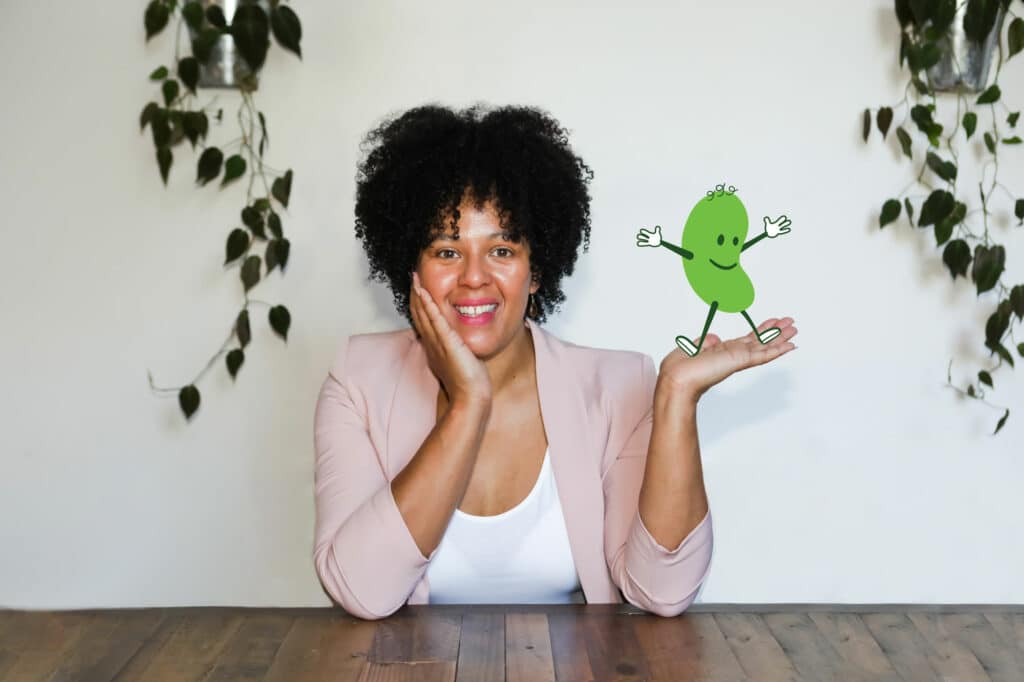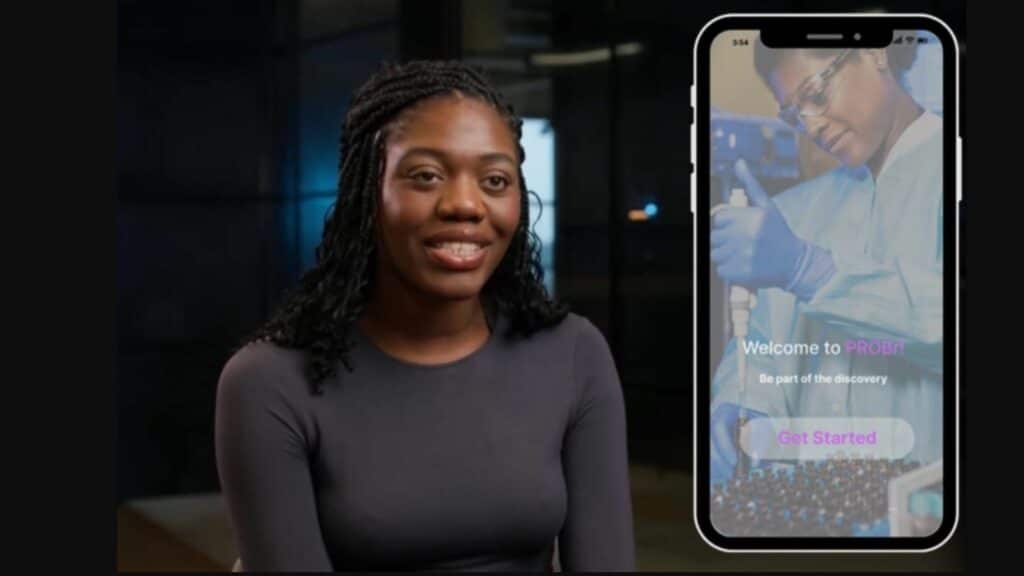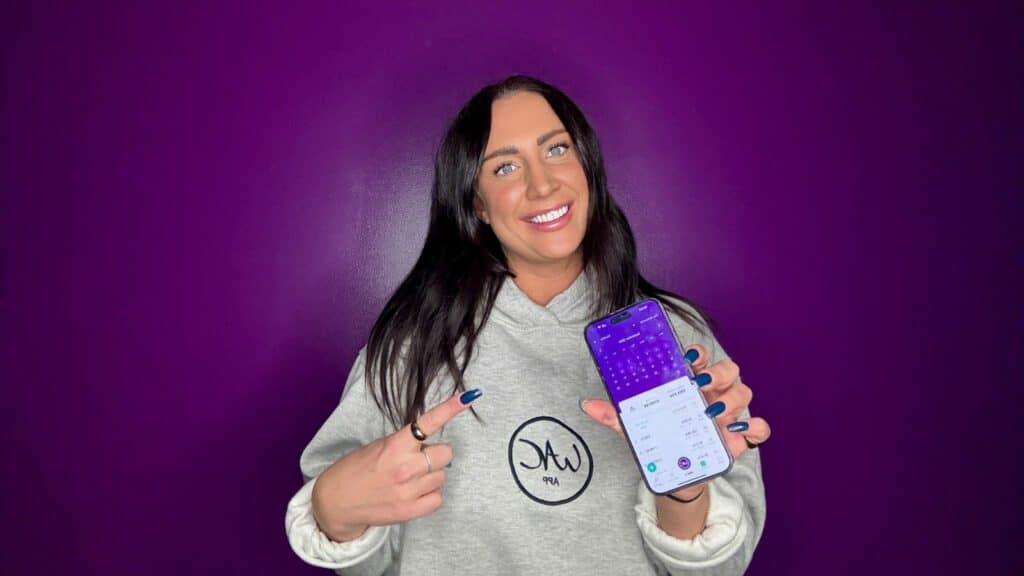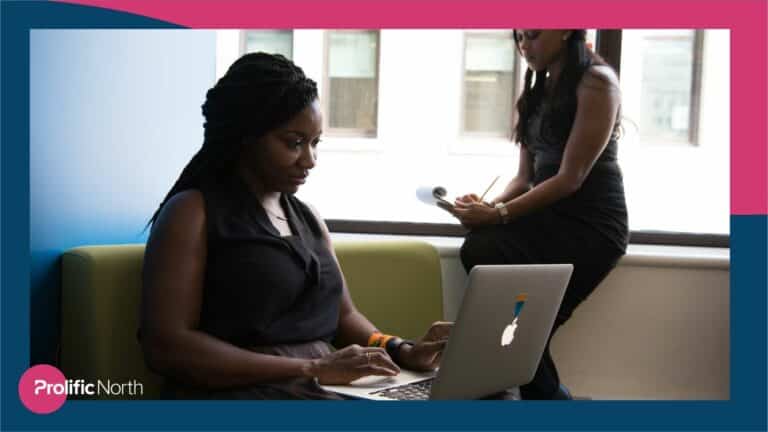The landscape for Northern female entrepreneurs looking to raise investment “hasn’t moved”, warns the frustrated founder behind Manchester-based children’s entertainment platform Green Bean Studios.
Two years ago, Anita Frost called it a “mess”. And she still holds that view today.
“Being a black female founder, I may seem more unfamiliar. I go into pitch meetings, I’m not wearing high heels and have a certain hair, eye and skin colour,” she says.
GET INVOLVED: Everything you need to know about our GRAFT event in May
Although she’s now able to pitch in more rooms, “the right investors aren’t in those spaces, so it’s a waste of time.” So as part of Prolific North’s GRAFT series looking into the future of Northern tech, we’ve taken a closer look at how – or if – the landscape has changed.
In most cities outside of London, less than 1% of investment capital goes to female-led businesses according to new data from The Lifted Project. And according to UKBAA, the UK Business Angels Association, 85% of funding rounds with at least one female founder fail to close.
“The stats haven’t moved the needle in any way despite everyone talking about it. We’re not deploying that investment – and that’s the bit we need to see.”
Green Bean Studios recently won the KPMG Black Entrepreneurs Award, which celebrates Black heritage entrepreneurs in the UK and provides a platform to market their businesses.

Although it has been a “huge advancement” for her business, she still hasn’t received the level of investment needed to scale Green Bean Studios in order to develop marketing, brand awareness, and product development.
Referencing the creative industries’ recent ‘Make It Fair’ campaign, she says it is a “powerful statement” as investment needs to be “fairer” for both entrepreneurs and investors.
“We’re not seeing investment being accessed, particularly for founders of colour. Make it Fair has been a bold statement in the headlines, I love it, and I think we could push that out across lots of spaces at the moment.”
“It feels like unconscious bias…”
It’s a frustration shared by other female founders across the North, including Dr Giovannie Jean-Louis, the founder of healthtech start-up PROBR.
READ MORE: How Northern tech is “grafting” its way to the top with global ambitions
PROBR is a digital research platform designed to make clinical research more accessible, diverse, and representative with ambitions to tackle the “big gap” between ethnic minority groups and effective healthcare.

As an early stage business, she credits the support of The Turing Innovation Catalyst accelerator programme for setting up connections with mentors and investors. But beyond this, investment has been a stumbling block.
“Manchester is emerging as an innovative hub, which I love and I do think it’s great, but I do think in terms of investment there could be more. There are great companies out there, but it is pretty limited.
“I’ve spoken to some investors, but I already know the challenges with the small percentage of women that receive investment.
“It’s very apparent, even with my background as a neuro-disability physiotherapist with extensive experience working across the NHS and private sectors, regardless of my credentials there’s still that apprehension with some investors I’ve dealt with.”
READ MORE: Why Northern tech firms are flocking to the ‘Mile High City’ of Denver for expansion
Asking for feedback from UK-based investors to help figure out where PROBR’s “weak areas” might be to improve, she’s instead met with “generic” advice instead.
“It’s not constructive enough. I understand investors don’t have a lot of time, but there should be feedback that follows after pitching.”
During a recent investor breakfast, the “goal posts” appeared to move when it was her time to pitch her prototype and concept.
“They just couldn’t get into it, no matter how I explained the traction, and what we’ve raised. I was met with ‘this sounds like a great product but I don’t think it’s for us’ yet a male colleague only had an idea and one of the investors wanted to follow up with him. It’s starting to align with the statistics that are out there.
“It feels like unconscious bias, that they don’t believe I can do this. But I can, and I plan to do much more.”
It’s a story that’s all too familiar to George Fairhall, founder of fair pay platform WAC app in Leeds. She recently shared how she launched her business, plus her experiences as a female founder.

“I’m definitely not spoken to in the ways I hear other male founders spoken to,” she explains.
Although she stressed it is rare – and has plenty of male allies across the tech ecosystem and in her team – she faced “subtle” comments and behaviour from investors, making it more difficult to call out.
“The only way I’ve been able to learn is by having male allies in the room, who hear it and tell me they’ve never been spoken to like that.”
Now, her motto is to go into external meetings with confidence and “blow their mind” about her business. And she hopes to inspire other entrepreneurs with her story too – despite the difficulties they may face early on.
“I came from a place where I had no idea, I didn’t have a network, I didn’t have money, so I want to be proof that you can do it. It’s all about being a hustler.”
“We want to back female-led businesses”
But out of around 200 pitch decks that DSW Ventures receives each month, “a small percentage are from female-founded businesses”.
“We want to back female-led businesses, but we actually don’t see the deal flow. We have noticed in the months where we’ve had record numbers of female applicants, it has been where we’ve been at events,” says Emma Cassidy, investment manager at DSW Ventures.
“It might be that they find it easier or find us more approachable there, having met us in person or through an introduction. We’ve noticed female founders are much less likely to just contact us directly with their pitch deck and I’m not really sure how we change that.”
READ MORE: Inside the Northern tech scene and the investors betting big outside London
On what the ecosystem could do better, it is to offer similar initiatives such as Lifted Ventures and the work it does to host more female-focused pitch events.
“There are angel groups and networks that do a great job of this, but they can’t cover absolutely everything so maybe we need more of this.”
There is also a “correlation between female decision-makers in VC and the percentage of female-founded businesses that get backed by those funds”.
She explains: “The more female decision-makers that we can have in venture capital firms, then the more likely that female-founded businesses will be backed.”
For that to happen, it “will take time” because often the first cheque going into a business is from angel investors but there are “not that many female angel investors”.
“There are lots of incentives and things in the community happening to try and improve that. But how many CEOs or c-suites in exited, venture capital-backed businesses are women? Those are typically the ones who become angel investors and invest in those female-founded businesses.”
READ MORE: ‘Why I’m moving to Manchester to scale my AI business’
Change needs to come “from the top” and the infrastructure in venture capital firms needs a shake-up to attract more female investors. “Anecdotally, across the industry the benefits on top of salary are not great, so things like parental leave are not as attractive as other sectors within the financial services sectors.”
So how can female-led businesses be represented better beyond more female investors or allies through visibility, mindset, and leadership?
Over at growth strategy and AI consultancy twisted loop, co-founder Alice Aspinall shares how anticipating growth challenges early on is “just as important as how you respond to them”.
“Many of the challenges we help our clients navigate, from scaling sustainably to using AI in purposeful, strategic ways, are the very ones we’ve worked through ourselves. That lived experience has shaped how we operate.”
She adds that “visibility matters” not just for a company, but for the individuals.
“Stepping out of our own way and consciously developing our personal brands has been just as vital as refining our services.”
For fellow co-founder Sarah Brett, a key part of twisted loop’s journey has revolved around building intentional partnerships and people who champion their work.
“These relationships have opened doors, challenged our thinking, and helped us stay energised during the inevitable ups and downs,” she explains.
“Looking ahead, staying grounded in our values and creating space to experiment have been essential to growing with purpose. If we can inspire other women to lead with confidence and step into the limelight, we feel a great sense of achievement. By sharing a bit of our story, we hope to encourage other female-led businesses to grow with confidence, and on their own terms.”








